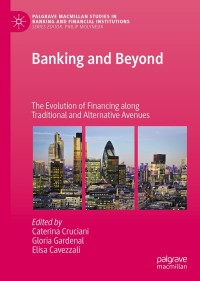Question
Instruction to Students: Based on the case below, identify THREE different types of behavioral biases and briefly explain why the selected incidences demonstrate behavioral biases
Instruction to Students:
Based on the case below, identify THREE different types of behavioral biases and briefly explain why the selected incidences demonstrate behavioral biases committed by Charlie. To facilitate grading, please (1) mention the title of the behavioral bias as a subheading when you begin the discussion of each of these biases; (2) write at least 300 words but no more than 500 words in total. (20 marks)
Case
Charlie is now aged 45. He is a civil engineer working for a listed company in Hong Kong and earning HK$ 50,000 per month. Charlie is married. His wife, Angel, is 40 years of age. She works as a Human Resources Manager of an export company in Hong Kong with a monthly salary of $36,000. The married couple does not have any children. The paragraphs below outline the investments that the couple has done since year 1997.
July 1997
The couple decided to purchase their first own apartment in Lam Tin in July 1997. They paid $4.5 million for the apartment on 70% mortgage from a local bank. The couple purchased the apartment with high hopes of taking profit on the skyrocketing property market at that time. However, as the economy in Hong Kong went down in year 2000. By year 2003, their apartment in Lam Tin fell in market value to $1.8million by 60%. In June 2003, the couple sold the apartment eventually at a price of $1.5million and realized an investment loss of $3million. After the couple had sold their apartment, the local property market seemed to recover from its bottom. Charlie regretted of having sold their Lam Tin apartment too early and believed that if they had delayed their sell decision, their loss would have been much smaller.
In October 2008, following the bankruptcy of the Lehman Brothers Inc., property prices on average dropped by 30% more. To Charlie, he thought that it was golden time to invest in the property market again. But the couple had several serious arguments due to their different views and the couple did not reach any consensus on a buy decision. Deep down in Charlie, he felt regretful of missing the golden investment chance. He promised himself that he would make a come-back on investing and would recover his previous losses by taking unilateral investment action behind his wife.
September 2009
Behind Angel, Charlie had been keeping a close eye on the stock market. He invested $200,000 in a Chinese stock in mid-September 2009. Just in one weeks time, he reaped a profit of $30,000. He was so happy about it and he truly believed that was easy money to make from the market. More importantly, his gain confirmed his unique investment insight and timing strategy. So, he treated his best friend, Chris, for a good lunch of $3,000 at a five-star hotel restaurant. During lunch, Charlie shared his own investment philosophy and timing strategy with Chris. In return, Chris showed Charlie with his computer about how effective the Bollinger Bands helped him on his gold futures trading. Charlie was extremely happy after the chat with Chris.
The next day after Charlie returned to the office, he came back to his internet trading. This time, he attempted to do a quick day-trade on the same lucky Chinese bank stock. Unfortunately, he lost $6,000 in that one-time trade on that day. He did not understand how that would happen. He left for home right away after work, hoping to forget about the loss for a while.
November 2009
After a months time, Charlie cooled himself down from the trading loss. He suddenly remembered Chriss words about how powerful the Bollinger bands has helped him make money in gold futures trading. After browsing through related investment websites and books about the applications of the Bollinger bands, Charlie trusted that he could outperform Chriss investments with this technical skill. He decided then to speculate in gold futures. After the three bets, he lost 60% of his capital in total. Feeling frustrated and betrayed by the Bollingers method, he uttered to himself that, after all he lost 60% already, he should not mind losing all of them in exchange for one chance of recovering all capital. Then he placed the rest of his 40% capital by doing the final bet but eventually lost all his money.
Step by Step Solution
There are 3 Steps involved in it
Step: 1

Get Instant Access to Expert-Tailored Solutions
See step-by-step solutions with expert insights and AI powered tools for academic success
Step: 2

Step: 3

Ace Your Homework with AI
Get the answers you need in no time with our AI-driven, step-by-step assistance
Get Started


